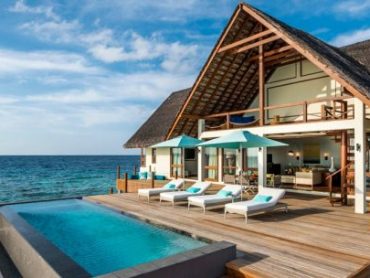Looking Back on the Great NYC Hotel Race
In 1919, two grand hotels were racing to completion. The Hotel Commodore connected to Grand Central Terminal and owned by The New York Central Railroad officially opened on January 28, 1919. Named after ‘Commodore’ Cornelius Vanderbilt, the founder of The New York Central Railroad System, it had a whopping 2,000 guestrooms. It also housed the single largest room ever constructed.
It was so large at the time that, the day after its opening, a circus complete with elephants and all was staged in its grand ballroom. Following extensive renovation by the Trump Organization, the property was reborn in the 1970s as the Grand Hyatt.
Not to be outdone, The Pennsylvania Railroad opened its own property, Hotel Pennsylvania, adjoining Penn Station some 15 blocks away. Intentionally opening a few days ahead of the Commodore, it was managed by Statler Hotels and was even larger with 2,200 guestrooms. Hotel Pennsylvania was also one of the first hotels to have a private bathroom for each guestroom. Amenities in the hotel included concierge, a dentist, a fully functioning hospital, separate plunge pools for both genders, a barber shop, a drug store, numerous bars, a coffee shop, a library, a spa, a full slate of restaurants and multiple conference rooms.
Fascinatingly, the property used a patented ‘Servidor’ two-way door system where valets could leave clothes or other articles inside each room’s doorframe so as to not disturb guests. The property is still run as New York’s Hotel Pennsylvania, although the room count has been reduced to 1,700 as many of the original hotel facilities have been converted to alternate commercial uses. And its telephone number, Pennsylvania 6-5000, that was immortalized by Glen Miller who played in the hotel’s Café Rouge still works to this day.
A hundred years ago, railways ruled. Hotels were seen as a necessary extension to a railway’s hub system. Thus, the impetus and funding for hotel development was clearly identified. Today, there is no such symbiotic relationship, so mega project such as these are rare. In the North American context, the only analogous example would be Las Vegas where gaming can justify the enormous capital investment.
Will both of these historic hotels survive the next one hundred years? The two properties have thus far taken vastly different trajectories – flag versus independent; premium versus economy pricing; full versus limited service.
Importantly, looking back at these two properties and how they’ve evolved over the past century will elucidate what can happen to your hotel. Nowadays, the issues facing hotels are daunting:
- How have guest expectations changed over the past century and how will they continue to past over the next hundred?
- Can you recall the exact moments when operational checkouts have been amended and expanded over the past couple decades or even the past few years?
- Will your hotel be able to withstand the pressures from the sharing economy?
- What new technologies will come to be essential for a proper hotel experience?
- What other major forces will come to revolutionize hospitality in the next few decades?
- Will the value of the underlying asset – that is, the land value – be satisfied by the annual returns of hotel operations, or can it be better served via an alternate model?
- How can you refurbish an underutilized or derelict space to create a new revenue stream?
- Above all, do certain hotels have a natural expiry date or can any property live on through new capital injections mixed with rebranding and updating of services?
Every urban property is facing these issues, and indeed every hotelier must at the very least ruminate over them in order to plan ahead for future guest demands. Most interesting to me is the first question posed because guest expectations seem to be accelerating in their requirements and thus pose the greatest challenge for managers in terms of keeping up with the trends, let alone setting them.
As a final thought, consider the fact that one prominent value-add of the Roaring Twenties was having an air conditioner in your guestroom, which happened to be a new invention of that decade with hotels, particularly those in Atlantic City, acting as the technological innovators rather than the laggards that most of them currently are. With this in mind, let’s wish these two centurions both a happy anniversary, and then look to how your property will ring in its centennial.




